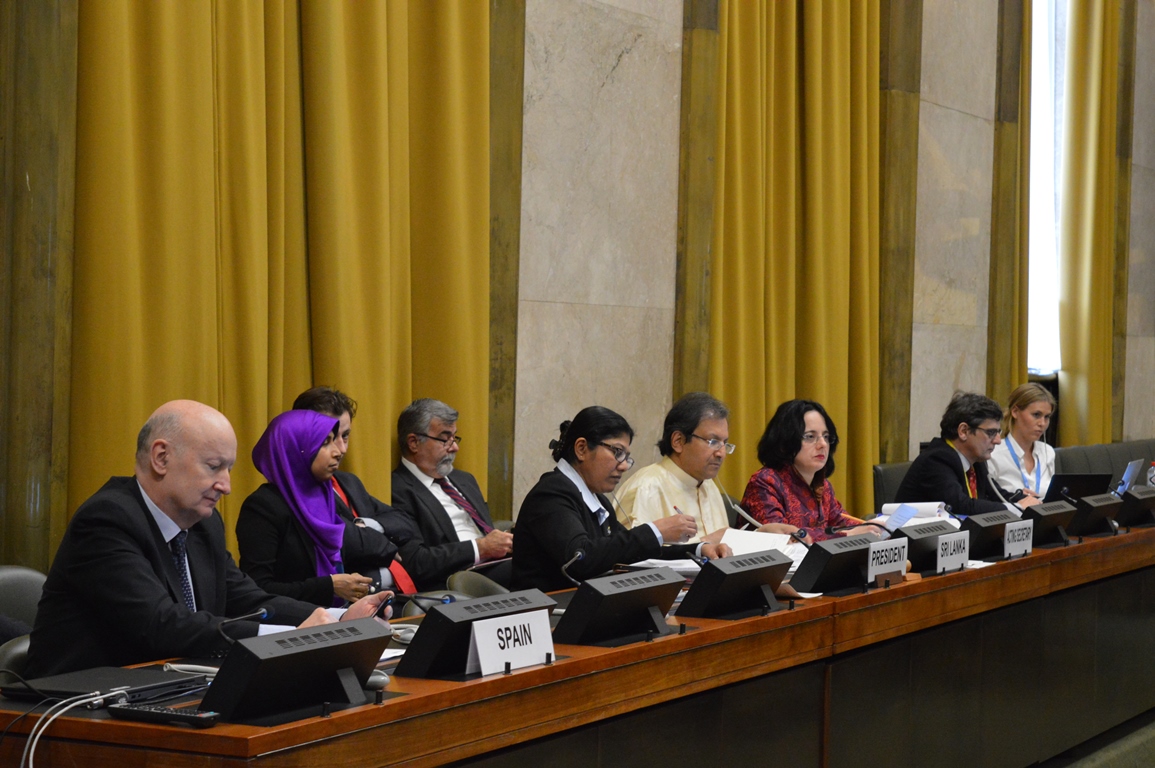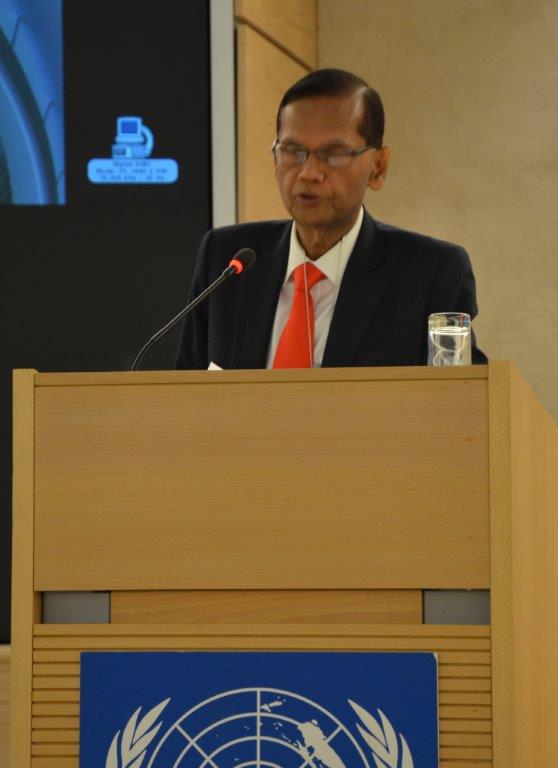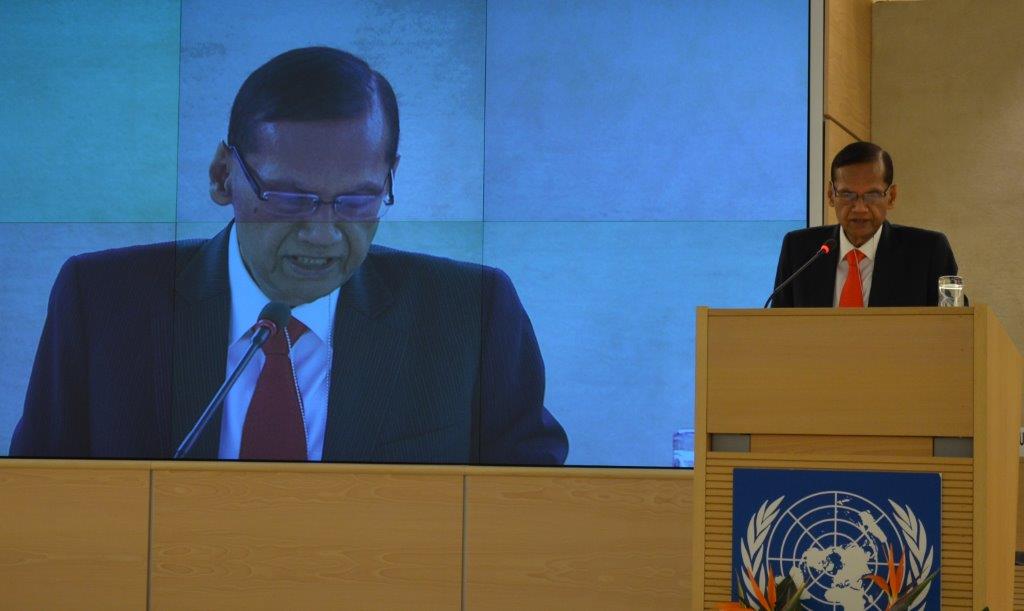
Minister of External Affairs and Leader of the Sri Lanka delegation Prof. G.L. Peiris, delivering the National Statement at the High Level Segment of the 25th Session of the UN Human Rights Council in Geneva today (5 March 2014), rejected the Report of the High Commissioner in its entirety, saying it was fundamentally flawed and disregarded the substantial progress made by the Government during the five years which have elapsed since the end of the thirty year conflict against terrorism. He said it also pays scant regard to the complexities and local nuances of a sensitive reconciliation process, while eroding the confidence of the people of Sri Lanka by the constant changing of unjustifiable demands. Moreover, they persist in an attitude which is clearly disproportionate to the circumstances and inconsistent with the treatment of comparable situations. It is much to be regretted that the High Commissioner’s Report and those who exalt its virtues only seek to inflict harm on the reconciliation process by bringing about a polarisation of the Sri Lankan society.

Minister of External Affairs and Leader of the Sri Lanka delegation Prof. G.L. Peiris, delivering the National Statement at the High Level Segment of the 25th Session of the UN Human Rights Council in Geneva today (5 March 2014), rejected the Report of the High Commissioner in its entirety, saying it was fundamentally flawed and disregarded the substantial progress made by the Government during the five years which have elapsed since the end of the thirty year conflict against terrorism. He said it also pays scant regard to the complexities and local nuances of a sensitive reconciliation process, while eroding the confidence of the people of Sri Lanka by the constant changing of unjustifiable demands. Moreover, they persist in an attitude which is clearly disproportionate to the circumstances and inconsistent with the treatment of comparable situations. It is much to be regretted that the High Commissioner’s Report and those who exalt its virtues only seek to inflict harm on the reconciliation process by bringing about a polarisation of the Sri Lankan society.

The Minister said the few references made in the Council welcoming the High Commissioner's Report on Sri Lanka, including at the highest level of the UN are regrettable, particularly considering that it is based on questionable and baseless material including what has been processed outside the UN framework. He noted that the Panel of Experts Report which was the culmination of a private consultation that the Secretary General sought for his own advice, and is not the product of any intergovernmental process, has been extensively resorted to by the High Commissioner in her Report to the Council, in a bid to legitimize it within the UN framework despite the lack of mandate in this regard. However, if the initiative taken on Sri Lanka at this juncture by the OHCHR is to be the basis on which the country is to be judged, it will clearly be a travesty of justice.

In this context, the Minister said Sri Lanka greatly valued the sentiments expressed in the Council by countries who have similar experiences with regard to reconciliation, that Sri Lanka be provided with the requisite time and space to address its own process domestically in a comprehensive manner as opposed to those who continue to pay disproportionate attention to Sri Lanka, based on agendas driven by political motives.
Permanent Mission of Sri Lanka to the UN
Geneva
05 March, 2014




